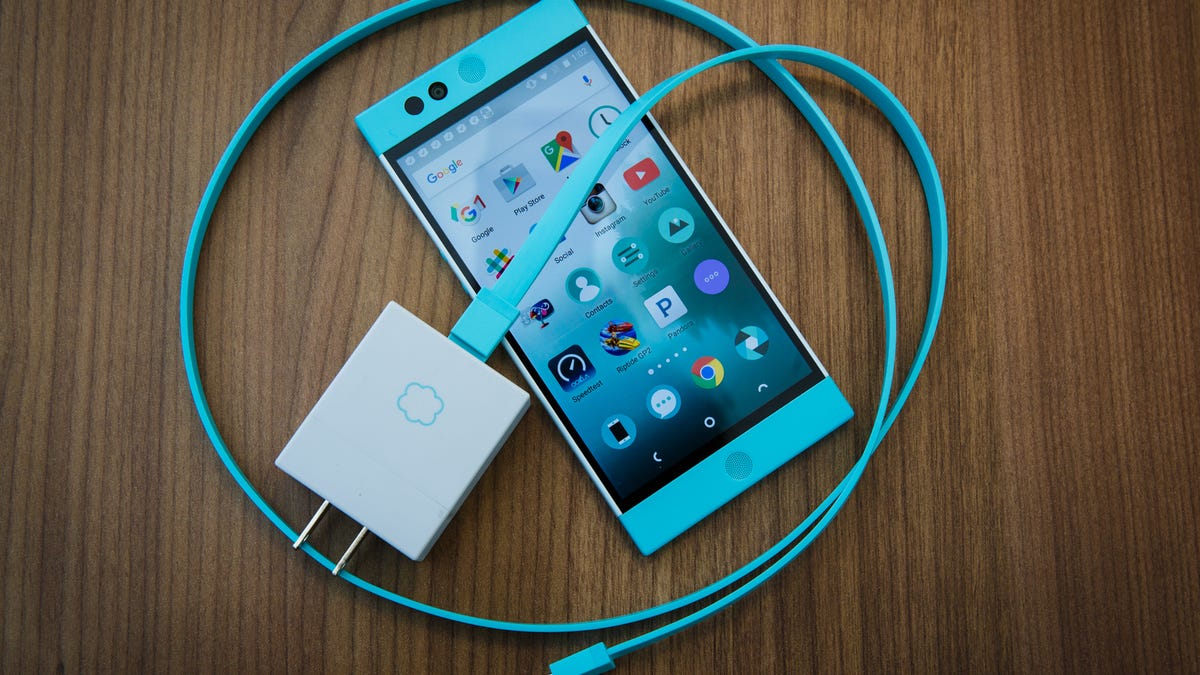Nextbit Robin phone will be no more as new owner Razer steps in
Robin phones will see software support for the next year, but don't expect a sequel soon.

Having hatched its cloud-based Robin phone with a Kickstarter campaign, it's time for hardware startup Nextbit to find its next nest. And it's a move that may surprise you.
On Monday, gaming hardware maker Razer announced that it acquired all 30 members of the Nextbit team. Razer wowed this year's CES with a gaming laptop fitted with three screens whereas the Robin was intentionally stripped-down; the two companies are hardly birds of a feather. Still, Razer's deeper pockets will give Nextbit's team, which includes veterans of Google and HTC, more resources to develop and distribute products.
"Joining up with Razer will allow us to reach much further," said Nextbit cofounder Tom Moss. Moss will continue as Nextbit's CEO under Razer CEO Min-Liang Tan.
While Nextbit will remain an independently operated unit that designs and develops products, don't hold your breath for another round of Robin anytime soon. Although Razer plans to hang on to the Nextbit and Robin names, Moss said, another Robin phone isn't on the radar for now. In fact, Nextbit has since stopped direct sales (it sold out of inventory through its website), though you can still buy the phone on Amazon.
Even though the Robin 2 seems unlikely for now, Nextbit isn't abandoning its chick entirely. Robin owners will receive software support through February 2018 and Razer will supply 6 months of hardware warranty support.
"As for future products," Moss told CNET, "I'm strictly forbidden from breathing a word about them." They won't necessarily be gaming related, he added.
Neither Razer nor Nextbit revealed what the deal is worth.
Robin looked to the cloud to break the phone mold
Nextbit entered the phone scene in 2015 when it announced that it would create a "friggin' awesome" cloud-first phone that would save space by keeping lesser-used apps online and downloading them when you need them. It would look different and cost about half of a top-shelf phone.
That was certainly a departure from your typical black or silver rectangle that sought to add more storage for a premium. Why not start with less onboard storage, to make it cheaper, and use an internet-based locker system for the rest? That was Nextbit's response.
The Robin, which launched as a Kickstarter campaign less than a month later, was more than a pipe dream. Staffed by industry veterans like Moss, formerly of Google, and one-time HTC design chief Scott Croyle, the fledgling company managed to build both excitement and community in a mature market already choked with much higher-profile brands struggling to keep their own foothold.
The Robin was a mixed bag when it arrived, but it retained its independent design and cloud-based focus through software updates for its niche following. It even added a third color, red.
Nextbit declined to share how many Robin phones it's sold, but it wouldn't have made a dent in sales by global titans Samsung and Apple. As a partly crowdfunded project (about 10 percent; Nextbit relied on VC backers including Google Ventures and Accel), the Robin was able to deliver on its product promise and attract Razer's acquisition.
Was the Robin the Cinderella story Nextbit may have hoped for? No, but it was successful enough to spark hope for other phone upstarts with a unique spin.

